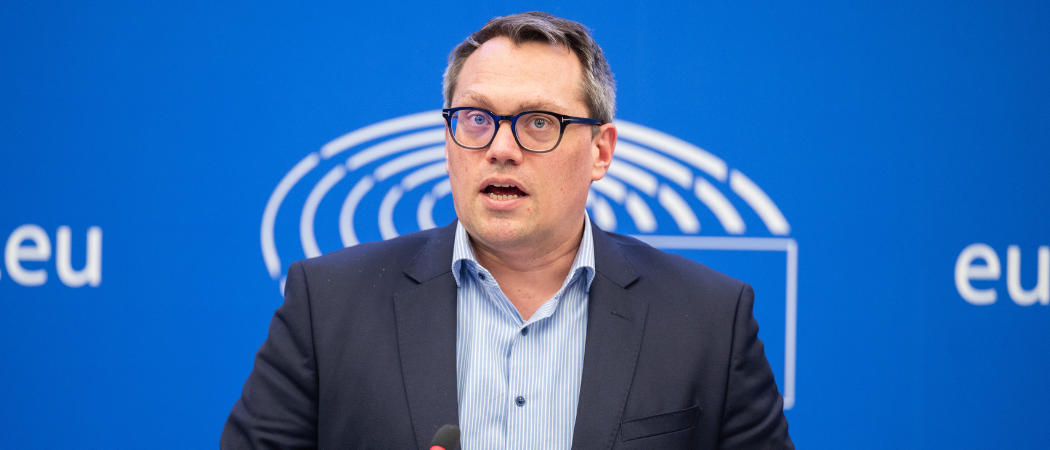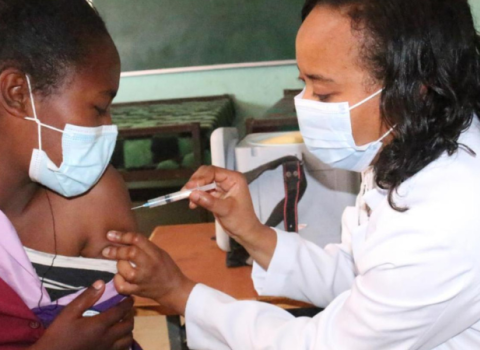After long negotiations MEPs agreed on the EU’s pharmaceutical reform. It includes longer exclusivity for data filed to get marketing approval for new drugs. But pharma still isn’t happy

Tiemo Wölken, rapporteur for the regulation. Photo credit: Emilie Gomez / European Union
The most significant reform to the EU’s pharmaceutical legislation in over two decades took a step closer today as the European Parliament’s Environment, Public Health and Food Safety (ENVI) committee adopted its position on the new directive and regulation.
The proposal aims to stimulate innovation that meets unmet medical needs and to address the problem of inequitable access to drugs across the bloc.
Tiemo Wölken, rapporteur for the regulation, said ahead of the vote that the legislation draws upon the lessons of the COVID-19 pandemic. “It will improve the lives of many patients in Europe,” he said.
“Today’s vote is a step towards delivering the tools to tackle present and future healthcare challenges, particularly for our market attractiveness and medicine access across EU countries,” said Pernille Weiss, rapporteur for the directive.
MEPs voted to introduce a minimum regulatory data protection period, during which other companies cannot access clinical trial data, of seven and a half years, plus two years of market protection during which generic or biosimilar products cannot be sold.
Companies would be eligible for an extension to the data protection period if a product addresses an unmet medical need, if comparative clinical trials are conducted, or if a significant share of a drug’s research and development takes place in the EU and in collaboration with EU research entities. There would be an upper cap of eight and a half years.
MEPs also voted to include a year-long extension to market protection if a company obtains a marketing authorisation for an additional therapeutic indication which provides significant clinical benefits in comparison with existing therapies.
Orphan drugs for treating rare disease would get up to 11 years market exclusivity if they address a “high unmet medical need”.
The pharmaceutical industry reacted angrily to the initial proposal from the Commission to reduce the baseline regulatory data protection from eight to six years. Companies said this would stifle innovation by reducing the incentive to develop new treatments.
Despite the changes, the industry still isn’t happy, with Nathalie Moll director general of the pharma industry group EFPIA saying, “The net impact of the proposals will make Europe less competitive and less attractive as a region for researching and developing medicines and vaccines.”
The overall effect will be to reduce incentives for companies to discover, develop and deliver new treatments in Europe. “We are highly likely see companies continue to shift resources – research and development, clinical trials, advanced manufacturing and scientific and academic skills - to areas with more ambitious life science strategies,” Moll said.
Drug resistant infections
To tackle the challenge of antimicrobial resistance, the Commission proposed introducing a transferable voucher, granting companies which develop novel antimicrobials up to 12 months of additional data protection, which can be transferred to another product. MEPs added a clause stating the voucher cannot be used for a product which has already benefited from maximum regulatory data protection.
They also introduced a subscription model-based voluntary joint procurement scheme, under which companies would be guaranteed a fixed payment per year for new antibiotics, in order to prevent overuse. An independent report commissioned by the Parliament’s Panel for the Future of Science and Technology (STOA) recommended a subscription model as the best option to incentivise research.
The Parliament’s text also calls for the European Health Emergency Preparedness and Response Authority, currently a Commission department, to become a separate structure under the European Centre for Disease Prevention and Control and to focus urgent health threats including antimicrobial resistance and medicines shortages.
It was a major challenge for Parliament to settle on a common position before the end of the current mandate, as there were significant differences of opinion between the major political groups.
A plenary vote is scheduled to take place during the 10-11 April session, but the file will have to be finalised after the European elections in June.





 A unique international forum for public research organisations and companies to connect their external engagement with strategic interests around their R&D system.
A unique international forum for public research organisations and companies to connect their external engagement with strategic interests around their R&D system.